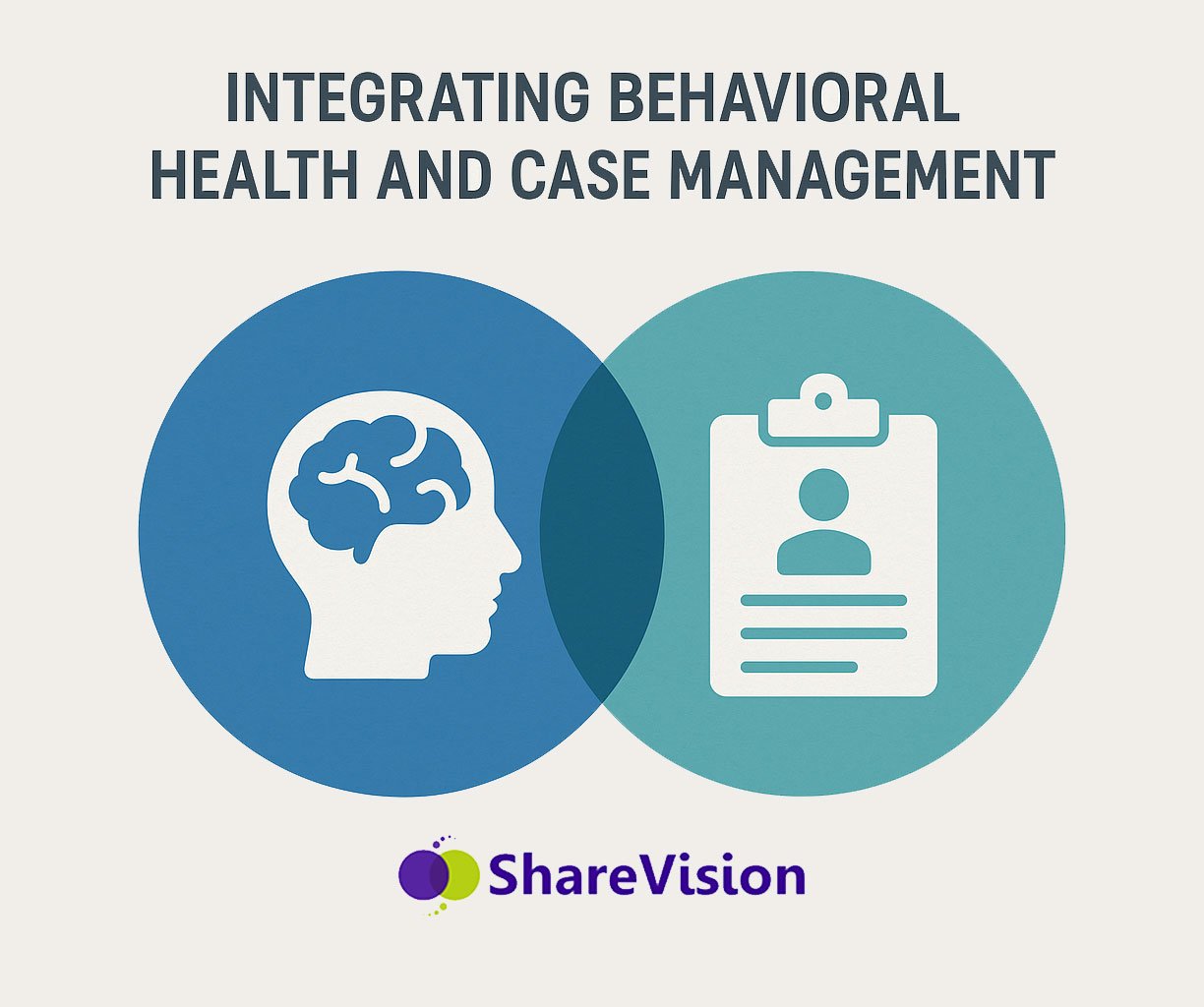Improving Client Care in Mental Health Services with Software
Discover how ShareVision's software enhances mental health services through streamlined tracking, secure data sharing, and efficient documentation.
Learn how integrating behavioral health and case management improves patient outcomes, streamlines care coordination, and supports modern healthcare solutions.

The integration of behavioral health and case management has emerged as a crucial approach to delivering comprehensive healthcare services that address both physical and mental health needs. This article explores the various aspects of integration, successful implementation strategies, and the transformative impact on healthcare delivery and patient outcomes.

The Collaborative Care Model represents a structured approach to integration, bringing together primary care providers, care managers, and psychiatric consultants in a coordinated effort. This model has demonstrated significant success in treating specific diagnoses and tracking patient progress through systematic registry-based tracking. The model's effectiveness lies in its formal consultation structure and clear communication channels between team members.
As an alternative to CoCM, the Primary Care Behavioral Health Model takes a broader approach by embedding behavioral health clinicians directly within primary care teams. This model offers greater flexibility in addressing various behavioral health issues without requiring formal patient enrollment. The PCBH model has proven particularly effective in enhancing primary care teams' capabilities to manage behavioral health conditions across diverse patient populations.
Several healthcare organizations have successfully implemented integrated care programs, demonstrating remarkable outcomes:

Modern integrated care relies heavily on advanced technology solutions:
Healthcare organizations must navigate complex regulatory requirements:
Implementation of integrated care models has demonstrated significant positive outcomes:
Several challenges must be addressed for successful integration:
The integration of behavioral health and case management represents a fundamental shift in healthcare delivery, offering improved patient outcomes, reduced costs, and enhanced care coordination.
Success requires careful attention to implementation strategies, technology adoption, regulatory compliance, and ongoing evaluation of outcomes. As healthcare continues to evolve, integrated care models will play an increasingly important role in delivering comprehensive, patient-centered care.
These integrated approaches and leveraging modern technology solutions can help healthcare organizations better serve their patients while improving operational efficiency and treatment effectiveness.
The future of healthcare lies in this comprehensive, integrated approach to patient care.
Discover how ShareVision's software enhances mental health services through streamlined tracking, secure data sharing, and efficient documentation.
Explore how Public Health Tools by ShareVision empower nonprofits with data management, client tracking, and customizable reporting.
Enhance mental health case management with software that supports documentation, progress tracking, and seamless team communication for improved care.